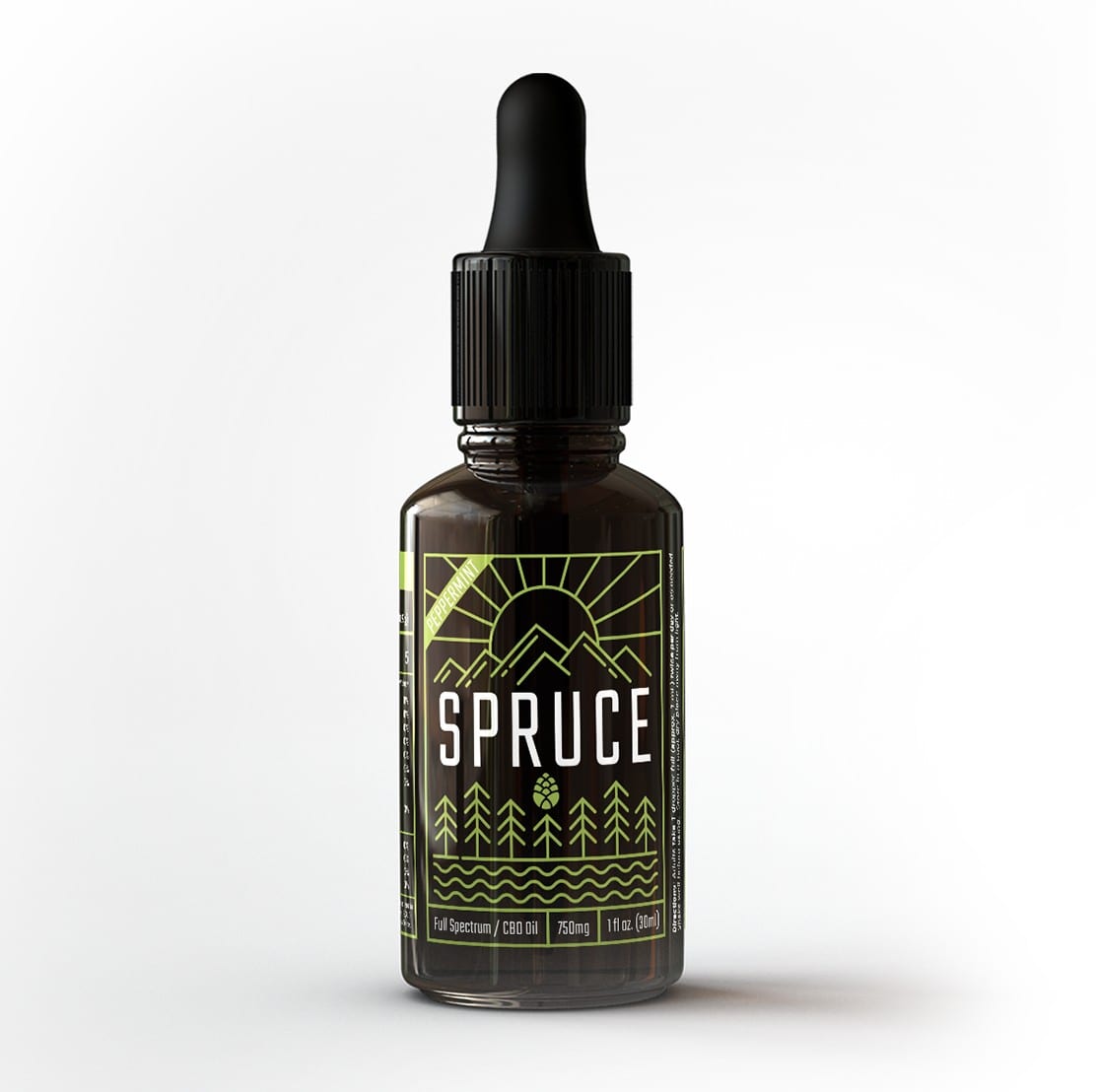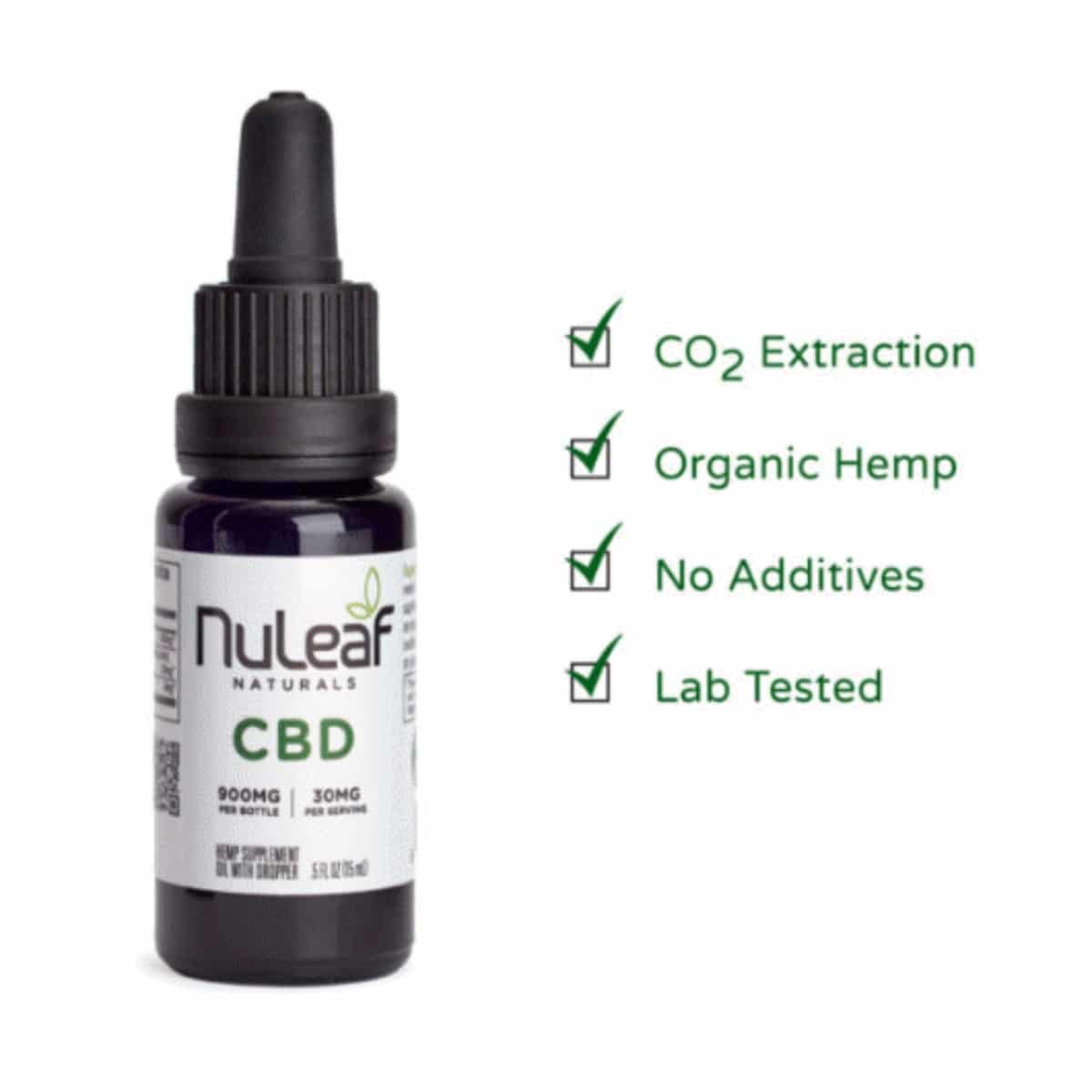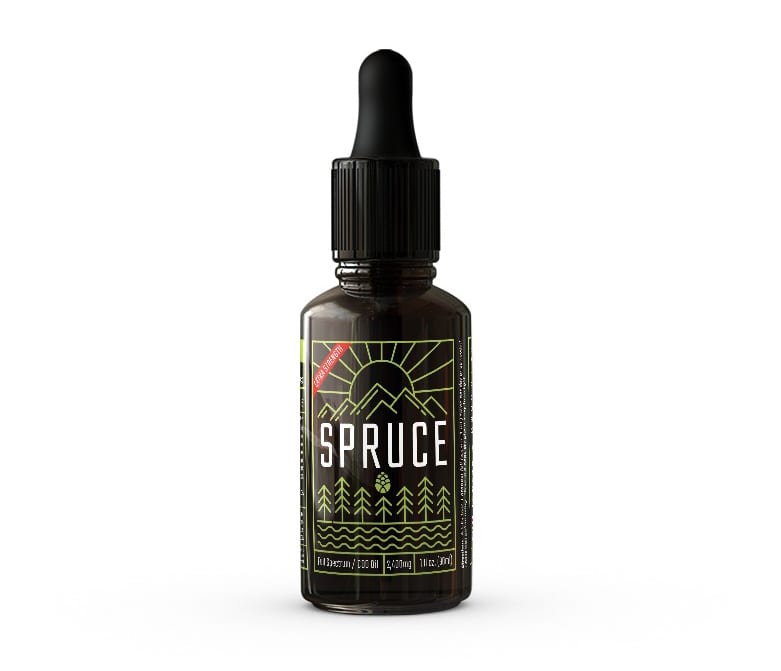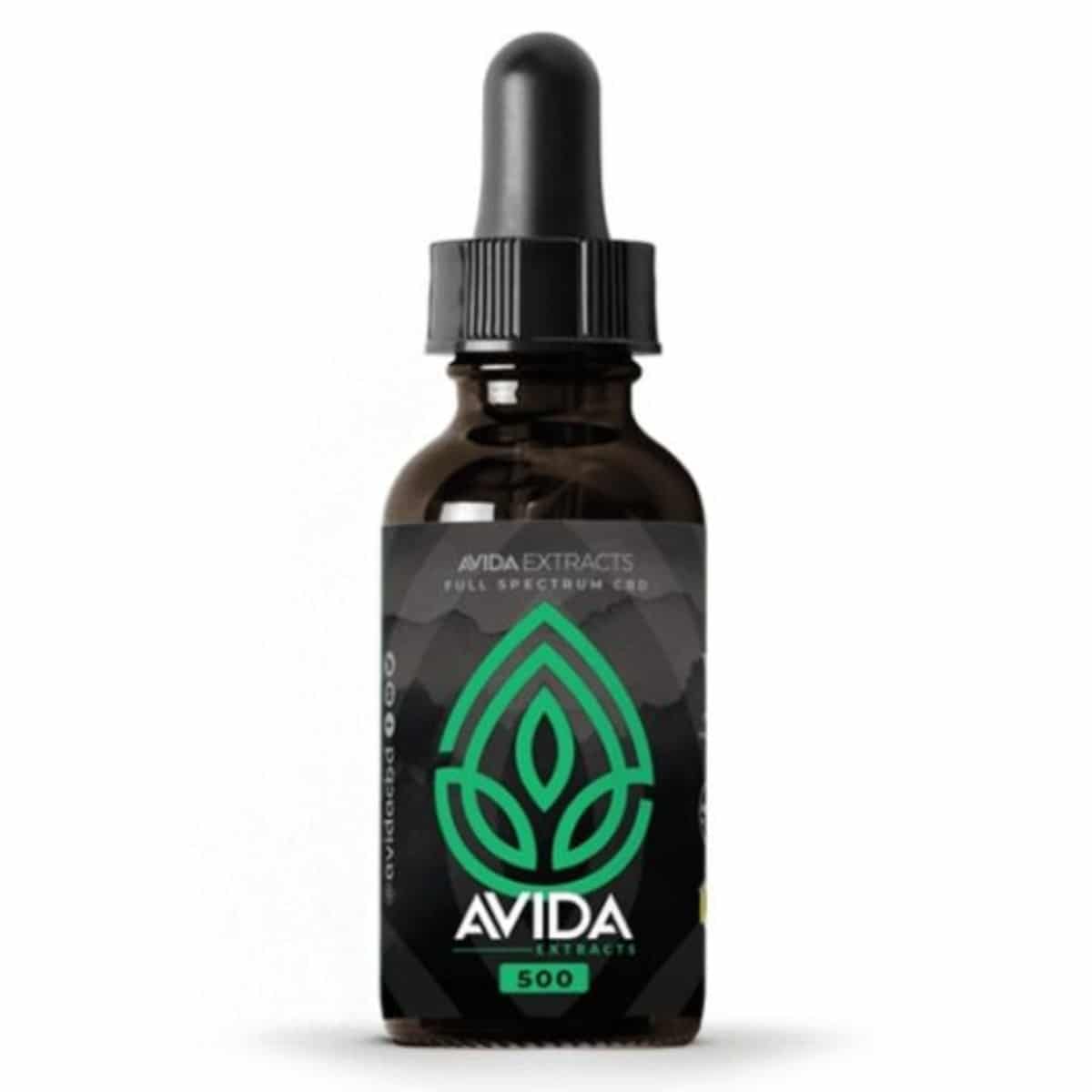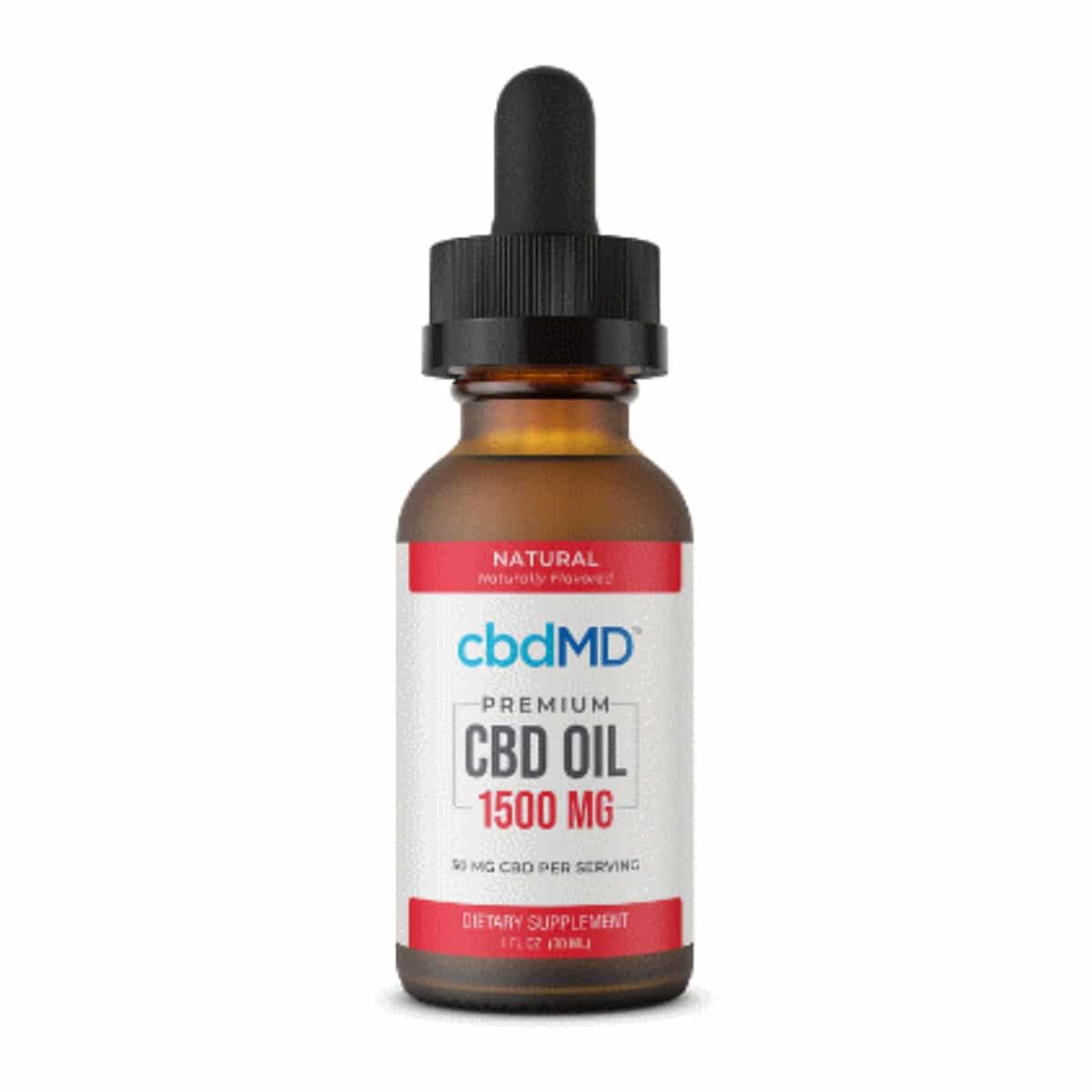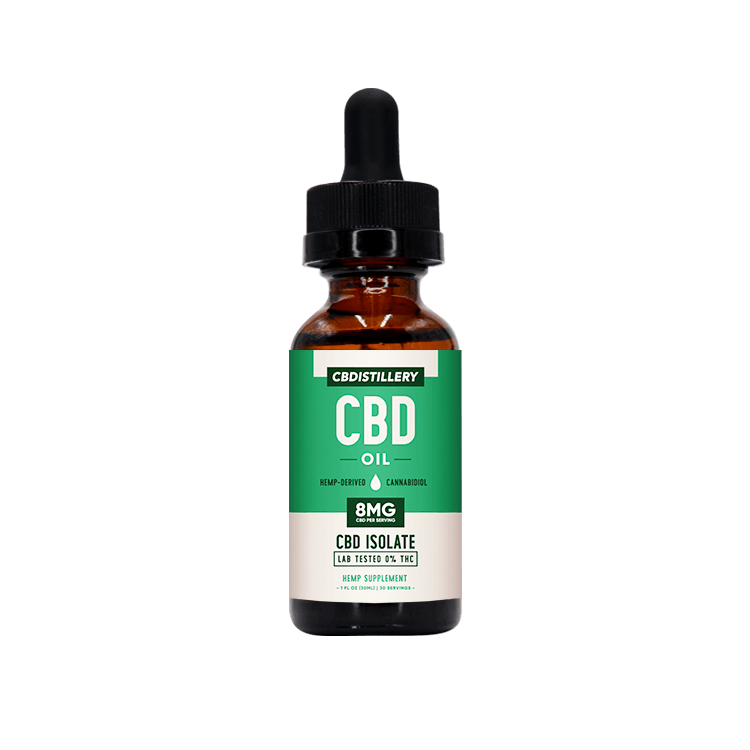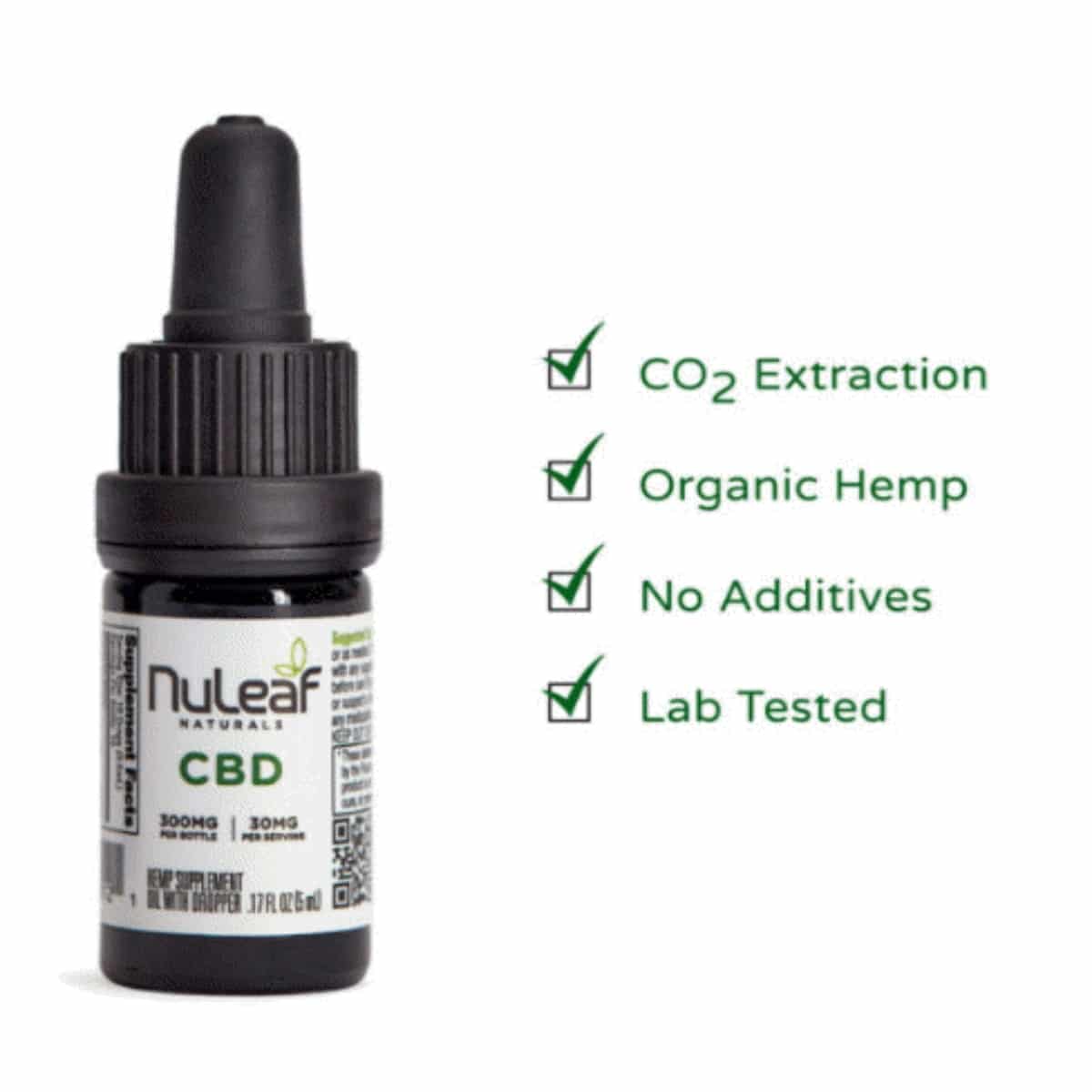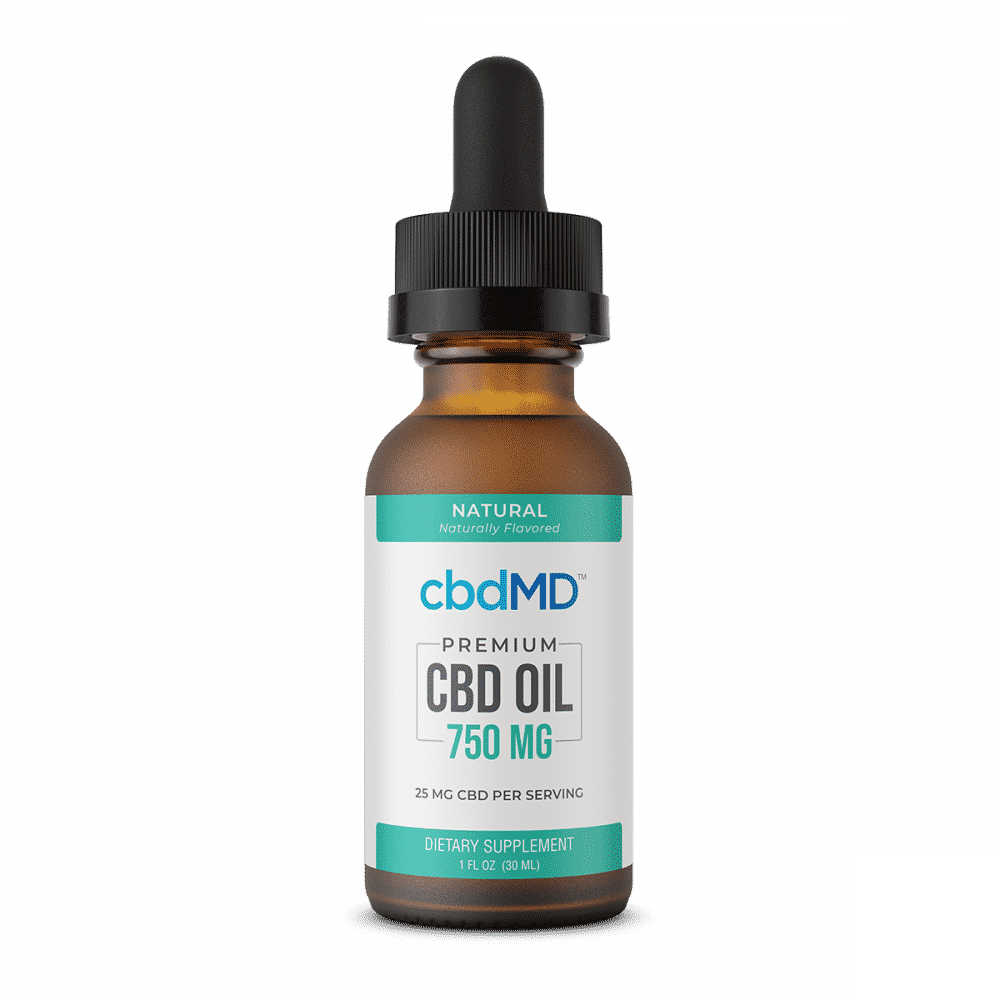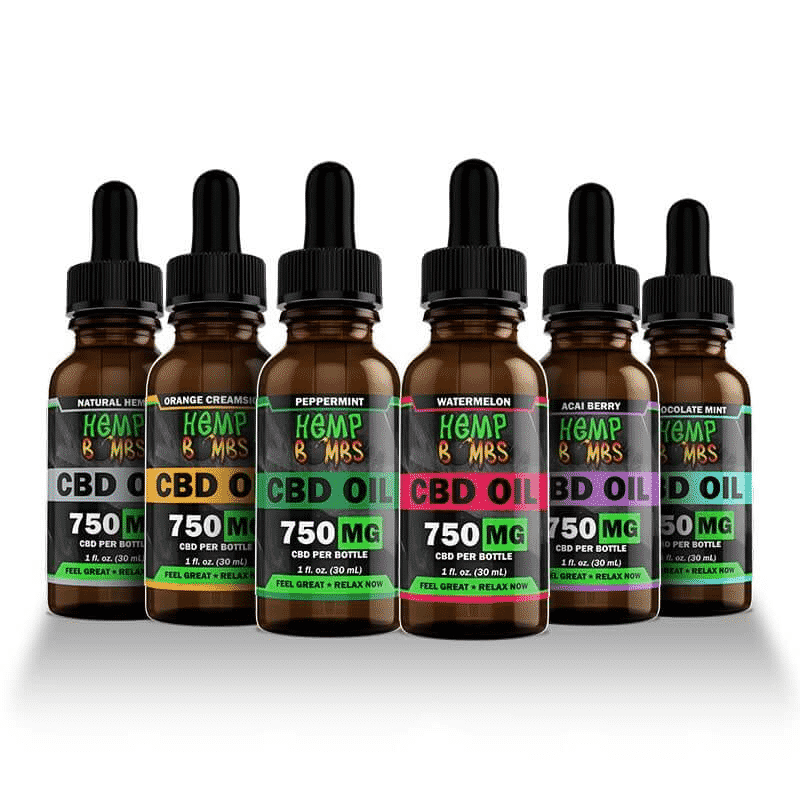Best CBD Oil for Fibromyalgia
Are you considering the use of cannabidiol (CBD) as an alternative treatment for your fibromyalgia symptoms? We have compiled the best CBD oils for fibromyalgia patients to help you decide which product to try.
Best CBD Oil for Fibromyalgia 2025
- Spruce 750mg Lab Grade CBD Oil Editor's Pick
- NuLeaf Naturals 900mg Full Spectrum Hemp CBD Oil Best Organic
- Spruce 2400mg Lab Grade CBD Oil Editor's Pick
- Avida Full Spectrum CBD Oil Tincture 500mg Best Seller
- cbdMD CBD Oil Tincture Natural 1500mg Best Natural Alternative
- CBDistillery THC Free CBD Oil Tinctures Best THC-Free
- cbdMD CBD Oil Tincture Natural 750mg Best Customer Rated
- NuLeaf Naturals 300mg Full Spectrum Hemp CBD Oil Best Starter
- Hemp Bombs 750mg CBD Oil Best Flavor Range
Compare the Best CBD for Oil for Fibromyalgia in 2021
Best CBD Oil for Fibromyalgia
1. Spruce 750mg Lab Grade CBD Oil
cbdc overall score
4.8
CBDC Evaluation Table/Score
| Pros | Cons |
|---|---|
|
Mid-strength |
No other flavors |
|
Natural peppermint flavor |
|
|
Made from 100% organic and natural ingredients |
Overview
Each bottle of the 750mg CBD oil tincture contains 25mg of CBD per dropper full. The oil is peppermint flavor to mask any unpleasant tastes related to CBD.
2. NuLeaf Naturals 900mg Full Spectrum Hemp CBD Oil
cbdc overall score
5.0
CBDC Evaluation Table/Score
| Pros | Cons |
|---|---|
|
Pure CBD hemp |
No other flavors |
|
All natural |
|
|
Approximately 300 drops total |
Overview
Natural remedy for various illnesses. NuLeaf Naturals’ CBD oil is a whole-plant extract containing a full spectrum of naturally occurring synergistic cannabinoids and terpenes.
3. Spruce 2400mg Lab Grade CBD Oil
cbdc overall score
5.0
CBDC Evaluation Table/Score
| Pros | Cons |
|---|---|
|
Extra Strength |
Tastes bitter |
|
No artificial flavoring or colors |
No THC-free option |
|
Made from 100% organic and natural ingredients |
Overview
The largest bottle of CBD oil that Spruce offers contains 2,400mg of CBD. This is full-spectrum CBD oil, which is the maximum possible potency. Each high potency dropper full contains 80mg of CBD. There are no flavorings in it, which allows for the most CBD to fit in the 30ml bottle.
4. Avida Full Spectrum CBD Oil Tincture 500mg
cbdc overall score
4.6
CBDC Evaluation Table/Score
| Pros | Cons |
|---|---|
|
Light Spearmint flavor |
No other flavor |
|
Non-THC, Non-detected in drug test |
Overview
Avida Extracts Full Spectrum CBD oil is the latest iteration of the brand’s advanced Avida CORE Spectrum technology. They use a proprietary full spectrum blend, resulting in the highest naturally occurring Phyto-cannabinoids and Terpenes with THC (<0.3) to support your health.
5. cbdMD CBD Oil Tincture Natural 1500mg
cbdc overall score
4.7
CBDC Evaluation Table/Score
| Pros | Cons |
|---|---|
|
Various delicious flavors to choose from |
cbdMD uses MCT as its carrier oil so individuals who are allergic with coconuts should consider other brand options |
|
Has vegan, organic, and gluten-free ingredients |
|
|
Free shipping for this particular product within USA |
|
|
World-class customer service team |
Overview
cbdMD’s CBD oil tinctures are made using only CBD sourced from medical hemp and MCT oil as a carrier oil. Tinctures are offered in orange, mint, natural, and berry flavors. Safe for daily use, the oil tinctures are packaged with a built-in rubber dropper to adjust CBD dosage easily. The packaging is made to be easy to transport and discreet to use.
6. CBDistillery THC Free CBD Oil Tinctures
cbdc overall score
4.4
CBDC Evaluation Table/Score
| Pros | Cons |
|---|---|
|
60-Day Satisfaction Guarantee |
Dropper is a bit shaky |
|
Various strengths |
|
|
Oil extracted from aerial plant parts of US grown industrial hemp |
|
|
Sourced from non-GMO industrial hemp grown in the USA through natural farming practices |
Overview
CBDistillery’s Isolate CBD Oil Tinctures harness the power of pure CBD. CBD Isolate Oil Tinctures include 0.0% THC. When you use CBDistillery CBD Isolate Oil Tinctures, you can be assured you’re using the highest quality CBD on the market.
7. NuLeaf Naturals 300mg Full Spectrum Hemp CBD Oil
cbdc overall score
4.6
CBDC Evaluation Table/Score
| Pros | Cons |
|---|---|
|
Pure CBD hemp |
No other flavors |
|
All natural |
A bit pricey compared to competitors |
|
Approximately 100 drops total |
Overview
This is one of several concentrations from NuLeaf Naturals. As the lowest concentration, it is the company’s best option for those new to CBD oil. The product is lab-tested and fully organic. It is full-spectrum, so it contains THC in small quantities.
8. cbdMD CBD Oil Tincture Natural 750mg
cbdc overall score
4.4
CBDC Evaluation Table/Score
| Pros | Cons |
|---|---|
|
Vegan and Gluten free |
Does not ship internationally |
|
Has a third-party lab test |
|
|
Wide variety of CBD strengths and sizes |
Overview
A 750mg bottle of cbdMD’s Broad Spectrum Oil Tincture does not contain THC. It also has a fairly wide flavor range which is perfect for those who prefer other taste. Vegan consumers are considered since cbdMD offers Vegan products. Aside from all of that, another reason why people love cbdMD is because it’s free from harmful chemicals.
9. Hemp Bombs 750mg CBD Oil
cbdc overall score
3.9
CBDC Evaluation Table/Score
| Pros | Cons |
|---|---|
|
Wide variety of flavors |
Incomplete information about the product |
|
Lab test results are complete |
Does not ship to all international countries |
|
30-day money-back guarantee |
Overview
Hemp Bombs offer CBD Oil Tinctures that come in a 30ml bottle containing 750mg of CBD. They provide a wide range of flavors perfect for those that have a knack for sweets. Consumers can safely intake this because it’s free of chemicals and pesticides. Hemp Bombs also offer a 20% off on products upon subscription.
How CBD Helps With Fibromyalgia
Fibromyalgia is a medical condition that causes widespread pain, sleep problems, tiredness, and mental and emotional distress. A 2015 study suggested that CBD may have therapeutic anti-inflammatory effects to help with fibromyalgia(1).
According to the study, CBD showed neuroprotective properties while promoting the brain’s cell repair, which may improve brain function in patients with fibromyalgia(2).
Fibromyalgia patients also experience abnormal pain perception processing that makes them more sensitive to pain than those without the medical condition.
According to the Centers for Disease Control and Prevention (CDC), fibromyalgia affects roughly four million US adults or about 2% of the US adult population(3).
Fibromyalgia inflames a part of the brain, which significantly contributes to pain and brain fog. The spinal cord and microglia in the brain also play an essential role in increasing the pain experienced by a fibromyalgia patient(4).
The body’s endocannabinoid system (ECS) possesses cannabinoid receptors known as CB1 and CB2. The latter plays an essential role in regulating the body’s immune system.
The CB1 and CB2 receptors also influence microglial cell function, which serves as the central nervous system’s primary form of active immune defense.
According to a 2016 study, treatment strategies that target these receptors may help improve inflammation(5).
Another study noted that CBD may also improve anandamide signaling, preventing the onset of behaviors linked to depression and anxiety(6).
Also a part of the ECS, anandamide is a neurotransmitter found in the brain that is responsible for regulating moods and homeostasis (state of balance).
Benefits of Using CBD for Fibromyalgia
Pain
Pain is the primary symptom experienced by people with fibromyalgia. Various studies have suggested that CBD may help relieve fibromyalgia pain.
An observational study was conducted between 2015 and 2017 to research the effects of CBD and tetrahydrocannabinol (THC) on fibromyalgia patients. THC is the main psychoactive component found in cannabis.
In the study, 52.2% of the patients (193 people) were reportedly struggling with high levels of pain.
Results showed that 81.1% of patients experienced overall improvements after CBD and THC treatment. Six months later, only 7.9% of patients (19 people) reported the same pain intensity(7).
In conclusion, the pain experienced by fibromyalgia patients is said to have declined from a median of 9.0 to 5.0.
Moreover, a study showed that nabilone (synthetic THC) was not well-tolerated by people with fibromyalgia(8). Thus, CBD used alone or in combination with THC may work better to ease fibromyalgia symptoms.
A 2015 review analyzed existing research done on the use of cannabinoids for chronic pain(9). However, the pain is linked to other disorders, like multiple sclerosis, and not only fibromyalgia.
The review suggested that there is high-quality evidence to support the use of CBD in relieving chronic pain.
Medical researchers also studied CBD’s potential in relieving neuropathic pain associated with malfunctioning or damaged nerves.
In a 2019 animal study, CBD demonstrated analgesic properties in rats, with the compound providing relief similar to painkillers(10).
The animal study suggested that regular intake of low-dose CBD may help relieve the pain linked with fibromyalgia. This statement is especially true concerning neuropathic pain caused by the condition(11).
Anxiety and Depression
Aside from chronic pain as a common symptom, fibromyalgia is also often accompanied by anxiety and depression.
Researchers have found CBD to have anxiolytic (anti-anxiety) and antidepressant properties that may reduce anxiety levels, stress, and depression(12).
According to a 2017 human study, an oral intake of 300 milligrams of CBD may contribute to lower cortisol levels and help ease anxiety(13).
Irritable Bowel Syndrome (IBS) Symptoms
Some patients with fibromyalgia also suffer from irritable bowel syndrome (IBS). This condition affects the large intestine and is characterized by abdominal pain, cramping, bloating, gas, constipation, or diarrhea.
An animal study explored how CBD counteracts the inflammatory environment in mice’s bowels and positively affects human colonic cultures(14).
This finding is backed by another study, which states that CBD is excellent in treating IBS. CBD also has no psychotropic effects, which are common in standard medicines(15).
Sleep
Another symptom that people living with fibromyalgia also have to endure is low sleep quality.
A recent study that examined treatment-resistant epilepsy patients revealed that 30% of the participants experienced sleepiness after receiving one large dose of CBD(16).
Healthy volunteers were tested in another clinical trial to see if large doses of CBD can affect sleep and wake cycles.
The preliminary results of the trial turned out negative, hinting that CBD oil may improve sleep quality in fibromyalgia patients(17). However, more research is still required to determine the safety and efficacy of CBD’s use.
CBD Dosage and Delivery Methods for Fibromyalgia
Dosage
There is no official recommended CBD dosage for fibromyalgia since studies are limited(18). However, preliminary results from research and trials may provide patients with insights on dosing.
In a 2019 study, a group of fibromyalgia patients was observed for at least six months(19). All of the patients were administered a low dosage of cannabis, which was gradually increased throughout the study.
The approved median dose of cannabis started at 670mg a day and became 1,000mg a day at the study’s sixth month. The approved median dose of THC was 140mg, while the approved median dose of CBD was 39mg a day.
Before the treatment, 193 patients described their pain as high-intensity. After six months of treatment, only 19 patients reported high levels of pain.
In another study, researchers administered 200 mg of CBD and 10mg of THC to 20 patients with sleep problems to reverse insomnia and promote sleep. The small THC amount added to the treatment seemed to have amplified CBD’s effects(20).
However, relief of some symptoms has also been observed on CBD use without the THC. In the study, the dosage ranged from 25mg to 600mg.
The treatment duration and onset time of CBD’s effects on fibromyalgia may vary significantly on the type of symptoms you may have.
Many studies on fibromyalgia focus on the symptoms associated with it rather than examining fibromyalgia as a condition.
Some studies suggest that one to three weeks is needed to observe changes in fibromyalgia pain and stimulate pain-relief related to new bone growth(21).
Another study on anxiety and sleep in 103 patients demonstrated CBD’s anxiolytic (anti-anxiety) effects in one month(22).
Before you buy and take CBD oil for fibromyalgia, it is advisable to get medical advice from a doctor experienced in CBD use.
A trusted healthcare professional will guide you on proper dosage and ensure that CBD does not interfere with any medication.
Ideally, you should start with the lowest dose possible to better understand your body’s reaction to CBD.
If you do not notice changes in any of the symptoms, you may slowly increase your dosage. Observe and take note of any reaction or effects.
You should also consider the following factors when finding the right CBD dose:
- Severity of fibromyalgia symptoms
- Mild symptoms may improve with lower dosing. Meanwhile, a higher, more potent dose may be necessary for severe and chronic symptoms.
- Body weight
- Metabolism and absorption
- How CBD is consumed
Methods of Delivery
There are several ways you can take CBD to help with various symptoms of fibromyalgia, such as via tinctures, gummies, topicals, and vape products. These delivery methods vary in bioavailability or the body’s absorption rate of CBD.
CBD tinctures may be consumed through a sublingual method, which allows you to control the dosage. It involves placing a few drops of CBD oil under the tongue using a dropper.
With the sublingual method, CBD is absorbed directly into the bloodstream in about 10 to 15 minutes, while the effects may last for a few hours(23).
CBD oil may also be ingested through edibles, gummies, or capsules. These products provide a fixed dose of CBD, making it convenient for first-time users.
Vaping may deliver fast-acting effects as CBD is sent directly to your lungs. Thus, CBD is quickly absorbed into the bloodstream and circulated throughout the body.
However, vape use has several side effects, including dry mouth and throat, coughing, and shortness of breath(24). Different lung injuries and diseases are also associated with vaping, such as lipoid pneumonia and collapsed lung(25).
CBD-infused topicals may also be applied directly to the skin to relieve fibromyalgia pain. Topical products include CBD creams, gels, lotions, balms, and salves.
With the topical method, CBD is absorbed through the surface of your skin and interacts with localized cannabinoid receptors. Effects may be noticed within 30 to 90 minutes after application(26).
Although topicals are designed to target painful areas in the body, these products have a limited absorption, which is not enough to reach the bloodstream.
CBD vs. Other Treatments for Fibromyalgia
Fibromyalgia treatment usually consists of pain relievers, muscle relaxants, antidepressants, and sleep medicines(27).
These medications help improve mood, reduce fatigue, promote sleep, and ease other problems associated with fibromyalgia, such as irritable bowel syndrome and restless legs syndrome.
The United States Food and Drug Administration (FDA) has approved three drugs to reduce pain and improve function in people with fibromyalgia. These drugs are duloxetine (Cymbalta), milnacipran (Savella), and pregabalin (Lyrica)(28).
The drugs typically prescribed for fibromyalgia work to turn down “pain volume” in the central nervous system.
However, nonsteroidal anti-inflammatory drugs (NSAIDs), opioids, and corticosteroids have been found to be largely ineffective in treating fibromyalgia pain(29).
Most patients that take these medications are subject to adverse side effects, such as nausea, dizziness, weakness, dry mouth, and constipation.
Meanwhile, CBD is a natural alternative that has shown minimal adverse reactions when taken continuously. These reactions to CBD are also more uncommon than the side effects of most pharmaceutical drugs for fibromyalgia treatment.
This statement is backed by a review from the World Health Organization (WHO). Based on WHO’s report, CBD was generally well-tolerated during several open-label trials and has an excellent safety profile(30).
Note that the symptoms of fibromyalgia may vary for each individual. Since CBD provides a range of therapeutic effects, it may not always be the best choice in alleviating the symptoms associated with the medical condition.
Risks and Side Effects of Using CBD for Fibromyalgia
Although CBD has potential therapeutic benefits for fibromyalgia and is considered safe to use, side effects may still occur.
Possible adverse reactions to CBD may include dry mouth, nausea, diarrhea, fatigue, drowsiness, loss of appetite, gastrointestinal problems, changes in mood and alertness, and liver damage(31).
A mice study suggested that CBD may increase the risk of liver toxicity, especially if taken in significant quantities(32).
Moreover, a study concluded that CBD has a complex pharmacokinetic profile(33). It is possible for CBD to interact with other drugs and dietary supplements, which may cause more harm than good.
You should avoid CBD if your supplements or medications carry a warning about grapefruit.
Examples of medications with grapefruit warning are buspirone (anti-anxiety drug) and cholesterol drugs, like atorvastatin (Lipitor) and simvastatin (Zocor)(34).
The United States Food and Drug Administration (FDA) also warns consumers against various CBD products being primarily marketed with unsubstantiated therapeutic claims and sold as supplements.
The FDA currently does not regulate the purity and safety of dietary supplements(35). Therefore, most CBD products available in the market do not have approval from the FDA.
Since there is no agency to check if they have undergone thorough testing, some CBD products may contain unknown ingredients. It may be difficult for you to determine if they are safe and effective to use.
Epidiolex is the only FDA-approved prescription drug product derived from a purified form of CBD(36).
This drug is used to treat seizures associated with two rare forms of epilepsy, Lennox-Gastaut syndrome and Dravet syndrome, in individuals two years of age and older.
How to Choose High-Quality CBD Products
While there are many CBD brands you can find in the market today, you should purchase CBD oil from legitimate and reputable providers only.
However, it may be challenging to identify which CBD products are reliable and safe to use, especially when various products are available.
Choosing the best CBD for fibromyalgia depends on the type of symptoms you experience, the type of CBD product chosen, and your preferences.
The following factors are essential in choosing high-quality CBD products:
-
Types of CBD Oils
There are three CBD oil types to choose from: full-spectrum, broad-spectrum, and CBD isolates.
Full-spectrum CBD oil contains all the cannabis plant’s naturally occurring cannabinoids and phytocompounds
During the extraction process and filtration, none of the cannabinoids are removed from the whole-plant extract.
Although full-spectrum products contain THC, the amount is less than 0.3%. This THC content is not enough to produce psychoactive effects and get an individual high.
According to a 2005 study, full-spectrum CBD extracts had greater therapeutic properties than pure CBD and produced an entourage effect(37). This effect is a result of the synergistic interaction between cannabinoids and terpenes.
Broad-spectrum CBD contains multiple cannabinoids and other chemical compounds in the cannabis plant. These compounds may include vitamins, minerals, and fatty acids to produce an entourage effect.
Although the entourage effect is possible with broad-spectrum CBD, it is important to note that the effect is more associated with full-spectrum CBD due to the presence of all the cannabis plant’s phytocompounds.
Broad-spectrum CBD oil goes through the normal extraction process. However, the THC compound is removed from the extract.
CBD isolates only contain cannabidiol, making them the purest form of CBD oil. This type of CBD is THC-free and does not have any other cannabinoids, terpenes, or fatty acids from the hemp plant.
During the extraction process, CBD is filtered out after the cannabinoids are extracted. Then, CBD goes through a chilling process called winterization to remove all other chemical compounds.
-
Source of Hemp
Since CBD products are derived from the hemp plant, you should pay attention to the product’s source of hemp.
Some CBD providers may use harsh chemicals, such as pesticides, fertilizers, or genetically modified organisms (GMOs) in the hemp. Trace amounts of these chemicals in the product could potentially put you at risk.
For this reason, it is advised to choose a CBD company that provides sufficient information on its hemp source and opt for organically grown, non-GMO hemp.
Hemp can come from different sources, like Europe and Asia. In the United States, hemp is mostly grown in Colorado, Oregon, and Kentucky.
Locally grown hemp is recommended, as US farmers and growers are required to possess certification from state departments of agriculture.
The certification ensures that hemp is grown in an area with strict regulations and quality standards. These certifications are also only issued if good cultivation practices are followed.
Hemp farms part of the pilot programs in Kentucky, Colorado, and North Carolina are also ideal hemp sources(38).
-
Extraction Methods
CBD extracts are obtained from the hemp plant using various extraction methods, including carbon dioxide (Co2), ethanol, steam distillation, and natural solvents.
Co2 extraction is one of the preferred methods for making CBD products. This extraction method uses carbon dioxide to separate the CBD oil from the plant material.
The extraction process involves a series of pressurized chambers and pumps to expose carbon dioxide to high pressure and very low temperatures.
Using Co2 extraction produces the safest and purest CBD oils. According to an analysis, this method results in high CBD concentrations—as much as 92%(39).
Another commonly used method is ethanol extraction. Ethanol, a plant-based solvent, is used to extract chemical compounds from the cannabis plant.
In this process, the hemp plant material is heated and soaked in ethanol for a specific amount of time. Then, the final solution is filtered to separate the liquids from the hemp plant matter.
-
CBD and THC Content
You should know how much CBD and THC you are getting from your chosen CBD oil. Dosages are expressed in milligrams (mg) and vary depending on the product form.
Some products do not specify their CBD potencies and only list their total cannabinoid content. This amount may include other related compounds and not just CBD and THC.
CBD and THC are two primary cannabinoids from the cannabis plant. CBD is a non-psychoactive compound found in hemp, while THC is abundant in marijuana and commonly associated with a feeling of high.
With less than 0.3% THC content, CBD is generally safe to use. However, high concentrations of THC may produce psychoactive effects and be detected in drug tests.
-
Carrier Oils
CBD oil products are typically made by extracting cannabidiol from the cannabis plant. CBD is then infused into a carrier oil to improve the bioavailability of the product.
There are various carrier oils used in CBD products. Two of the most commonly used oils are hempseed and MCT (medium-chain triglycerides) oil.
The term “hemp oil” is not to be confused with “hempseed oil.” Hemp oil is produced by extracting the oil from hemp, while hempseed oil is extracted from the seeds of the hemp plant.
However, hempseed oil has no CBD content. This carrier oil is rich in omega fatty acids, vitamin E, protein, and bioactive compounds that are beneficial to the body.
Meanwhile, MCT oil is derived from palm or coconut oil. MCT is a type of fatty acid that allows quick absorption, metabolization, and use.
-
Other CBD Product Ingredients
Other ingredients are sometimes added to CBD products for consistency, flavoring, and other health benefits. Some CBD brands offer products that are free from gluten and vegan-friendly.
For instance, CBD oils or gummies come in a wide range of flavors to mask the strong taste of pure hemp extract. The flavoring also allows CBD oil to be added to food and beverages.
However, you should take note of the other ingredients used in CBD oil. Make sure that CBD products do not contain additives and artificial ingredients by reading the product label.
-
Third-Party Lab Testing
When choosing a CBD product, it is crucial for you to check whether the CBD company subjects its products to testing by external laboratories. Third-party laboratory testing ensures the safety, purity, potency, and quality of CBD oil products.
Lab test results or certificates of analysis (COA) must be readily accessible on the company’s website. The lab result usually indicates the total amount of cannabinoids in a CBD product.
The COA also reports if the product contains harmful contaminants, such as preservatives, bacteria, pesticides, residual solvents, mycotoxins, and heavy metals.
You should see if the company’s claims about the potency of their CBD products match that of the third-party lab results.
Legality of CBD
CBD is readily available in most parts of the United States. However, the legality of CBD in different states may have varying levels of restriction.
In December 2015, the Food and Drug Administration eased the regulatory requirements to allow researchers to conduct further CBD investigations and trials(40).
On the federal level, the Farm Bill of 2018 legalized hemp-derived CBD oil with less than 0.3% THC(41). The law allowed the growth, production, and manufacturing of hemp federally.
The 2018 Farm Bill also removed industrial hemp as a Schedule I drug from the federal Controlled Substance List.
Meanwhile, all 50 states have their laws allowing CBD with varying degrees of restriction. Many states have passed cannabis-related laws legalizing CBD-rich oils containing high levels of THC(42).
Medical cannabis may be allowed for patients with qualifying conditions under a state’s medical marijuana program(43). Patients may be required a diagnosis and prescription from a licensed physician before being allowed to use CBD.
You should research the exact legal stipulations applicable to CBD in the area where it would be purchased and used.
Product Frequently
Asked Questions
-
How can CBD help with my fibromyalgia?
CBD has anti-inflammatory properties that may help reduce pain experienced by fibromyalgia patients. Additionally, CBD offers potential neuroprotective properties to stimulate cell repair and improve brain function(44).
-
What are the benefits of CBD use in fibromyalgia patients?
Multiple studies have demonstrated that CBD may alleviate symptoms associated with fibromyalgia, such as neuropathic pain, anxiety, depression, and sleep disruptions(45).
-
What is the CBD dosage for fibromyalgia?
Currently, there are limited studies on CBD for fibromyalgia(46). Hence, there is no official dosage that may be recommended for fibromyalgia patients.
You can begin with small amounts of CBD and gradually increase the dosage.
-
Is there any evidence that CBD can make my fibromyalgia worse?
Current evidence is not sufficient to determine whether CBD can make fibromyalgia worse(47). However, high levels of THC may potentially worsen symptoms associated with fibromyalgia, such as anxiety(48).
-
Will CBD interact with any current medications I may be taking for fibromyalgia?
CBD may interfere with the metabolic activity of cytochrome P450 (CYPs), a group of enzymes important for drug metabolism(49). For this reason, people should avoid taking CBD with medications carrying a grapefruit warning.
Anti-anxiety drugs, such as buspirone, are some examples of medications with grapefruit warning(50).
-
Are there other treatments I should consider taking alongside CBD to help with fibromyalgia?
People with fibromyalgia may consider various treatments for their symptoms, including pain relievers, muscle relaxants, antidepressants, and sleep medicines.
Three medications have received FDA-approval for pain management and improvement of fibromyalgia symptoms: duloxetine (Cymbalta), milnacipran (Savella), and pregabalin (Lyrica)(51).
-
Is it possible for me to fail a drug test when using CBD for fibromyalgia?
A drug test may not detect trace amounts of THC in CBD oil. However, it is possible for THC to accumulate in the body over time(52).
Thus, frequent use of CBD products may raise the levels of THC, resulting in a positive drug test.
-
What are the side effects of CBD?
Possible side effects of CBD may include nausea, fatigue, dry mouth, diarrhea, drowsiness, changes in mood and alertness, changes in appetite, gastrointestinal problems, and liver damage(53).
CBD also has the potential to interact with other prescribed medications and dietary supplements(54).
-
What are the qualities of a good CBD product?
A good CBD product is made from organically grown, non-GMO hemp. High-quality products are also free from harmful contaminants, including preservatives, pesticides, bacteria, residual solvents, and heavy metals.
-
Which strain is good for fibromyalgia?
Choosing a strain for fibromyalgia depends on your personal preference, the CBD product’s cannabinoid profile, and the duration of your treatment.
You may choose between THC-predominant or CBD-predominant strains. Or you can use mixed types of strains. Some examples of these strains are Cannabis sativa and Cannabis indica(55).
- Burstein, S. Cannabidiol (CBD) and its analogs: a review of their effects on inflammation. Department of Biochemistry & Molecular Pharmacology, University of Massachusetts Medical School, 364 Plantation St., Worcester, MA 01605, United States. https://doi.org/10.1016/j.bmc.2015.01.059
- Ibid.
- CDC.gov. Fibromyalgia. Retrieved from: https://www.cdc.gov/arthritis/basics/fibromyalgia.htm
- Albrecht DS, Forsberg A, Sandström A, et al. Brain glial activation in fibromyalgia – A multi-site positron emission tomography investigation. Brain Behav Immun. 2019;75:72‐83. doi:10.1016/j.bbi.2018.09.018
- Turcotte C, Blanchet MR, Laviolette M, Flamand N. The CB2 receptor and its role as a regulator of inflammation. Cell Mol Life Sci. 2016;73(23):4449‐4470. doi:10.1007/s00018-016-2300-4
- Leweke FM, Piomelli D, Pahlisch F, et al. Cannabidiol enhances anandamide signaling and alleviates psychotic symptoms of schizophrenia. Transl Psychiatry. 2012;2(3):e94. Published 2012 Mar 20. doi:10.1038/tp.2012.15
- Sagy, I., Bar-Lev Schleider, L., Abu-Shakra, M., & Novack, V. (2019). Safety and efficacy of medical cannabis in fibromyalgia. Journal of clinical medicine, 8(6), 807.Walitt, B., Klose, P., Fitzcharles, M. A., Phillips, T., & Häuser, W. (2016). Cannabinoids for fibromyalgia. Cochrane Database of Systematic Reviews, (7).
- Skrabek, R. Q., Galimova, L., Ethans, K., & Perry, D. (2008). Nabilone for the treatment of pain in fibromyalgia. The journal of pain : official journal of the American Pain Society, 9(2), 164–173. https://doi.org/10.1016/j.jpain.2007.09.002
- Lynch, M. E., & Ware, M. A. (2015). Cannabinoids for the treatment of chronic non-cancer pain: an updated systematic review of randomized controlled trials. Journal of neuroimmune pharmacology, 10(2), 293-301.
- De Gregorio D, McLaughlin RJ, Posa L, et al. Cannabidiol modulates serotonergic transmission and reverses both allodynia and anxiety-like behavior in a model of neuropathic pain. Pain. 2019;160(1):136‐150. doi:10.1097/j.pain.0000000000001386
- Cheng CW, Wong CS, Hui GK, Chung EK, Wong SH. Fibromyalgia: is it a neuropathic pain?. Pain Manag. 2018;8(5):377‐388. doi:10.2217/pmt-2018-0024
- Blessing, E. M., Steenkamp, M. M., Manzanares, J., & Marmar, C. R. (2015). Cannabidiol as a potential treatment for anxiety disorders. Neurotherapeutics, 12(4), 825-836.
- Zuardi AW, Rodrigues NP, Silva AL, et al. Inverted U-Shaped Dose-Response Curve of the Anxiolytic Effect of Cannabidiol during Public Speaking in Real Life. Front Pharmacol. 2017;8:259. Published 2017 May 11. doi:10.3389/fphar.2017.00259
- De Filippis, D., Esposito, G., Cirillo, C., Cipriano, M., De Winter, B. Y., Scuderi, C., … & Iuvone, T. (2011). Cannabidiol reduces intestinal inflammation through the control of neuroimmune axis. PLoS One, 6(12), e28159.
- Martínez, V., Iriondo De-Hond, A., Borrelli, F., Capasso, R., del Castillo, M. D., & Abalo, R. (2020). Cannabidiol and Other Non-Psychoactive Cannabinoids for Prevention and Treatment of Gastrointestinal Disorders: Useful Nutraceuticals?. International Journal of Molecular Sciences, 21(9), 3067.
- Laux LC, Bebin EM, Checketts D, et al. Long-term safety and efficacy of cannabidiol in children and adults with treatment resistant Lennox-Gastaut syndrome or Dravet syndrome: Expanded access program results. Epilepsy Res. 2019;154:13‐20. doi:10.1016/j.eplepsyres.2019.03.015
- Linares IMP, Guimaraes FS, Eckeli A, et al. No Acute Effects of Cannabidiol on the Sleep-Wake Cycle of Healthy Subjects: A Randomized, Double-Blind, Placebo-Controlled, Crossover Study. Front Pharmacol. 2018;9:315. Published 2018 Apr 5. doi:10.3389/fphar.2018.00315
- Sagy, I., et.al. op. cit.
- Ibid.
- Shannon, S., Lewis, N., Lee, H., & Hughes, S. (2019). Cannabidiol in anxiety and sleep: a large case series. The Permanente Journal, 23.
- Jahan, F., Nanji, K., Qidwai, W., & Qasim, R. (2012). Fibromyalgia syndrome: an overview of pathophysiology, diagnosis and management. Oman medical journal, 27(3), 192.
- Shannon, S.,, et.al. op. cit.
- Huestis, M. A. (2007). Human cannabinoid pharmacokinetics. Chemistry & biodiversity, 4(8), 1770.
- Farsalinos, K. E., Romagna, G., Tsiapras, D., Kyrzopoulos, S., & Voudris, V. (2014). Characteristics, perceived side effects and benefits of electronic cigarette use: a worldwide survey of more than 19,000 consumers. International journal of environmental research and public health, 11(4), 4356-4373.
- Broderick, S. (2020). What Does Vaping Do to Your Lungs? Johns Hopkins Medicine. https://www.hopkinsmedicine.org/health/wellness-and-prevention/what-does-vaping-do-to-your-lungs
- Taskar, P., Adelli, G., Patil, A., Lakhani, P., Ashour, E., Gul, W., … & Majumdar, S. (2019). Analog derivatization of cannabidiol for improved ocular permeation. Journal of Ocular Pharmacology and Therapeutics, 35(5), 301-310.
- FDA.gov. (January 2014). Living with Fibromyalgia, Drugs Approved to Manage Pain. Retrieved from: https://www.fda.gov/consumers/consumer-updates/living-fibromyalgia-drugs-approved-manage-pain
- Ibid.
- Arthritis Foundation.org. Medications for Treating Fibromyalgia Symptoms. Retrieved from: https://www.arthritis.org/diseases/more-about/medications-for-treating-fibromyalgia-symptoms
- World Health Organization (WHO). (2018). Cannabidiol (CBD) Critical Review Report. https://www.who.int/medicines/access/controlled-substances/CannabidiolCriticalReview.pdf
- Machado Bergamaschi, M., Helena Costa Queiroz, R., Waldo Zuardi, A., & Crippa, A. S. (2011). Safety and side effects of cannabidiol, a Cannabis sativa constituent. Current drug safety, 6(4), 237-249.
- Ewing, L. E., Skinner, C. M., Quick, C. M., Kennon-McGill, S., McGill, M. R., Walker, L. A., … & Koturbash, I. (2019). Hepatotoxicity of a cannabidiol-rich cannabis extract in the mouse model. Molecules, 24(9), 1694.
- Brown, J. D., & Winterstein, A. G. (2019). Potential Adverse Drug Events and Drug-Drug Interactions with Medical and Consumer Cannabidiol (CBD) Use. Journal of clinical medicine, 8(7), 989. https://doi.org/10.3390/jcm8070989. https://www.ncbi.nlm.nih.gov/pmc/articles/PMC6678684/
- FDA.gov. (July 2017). Grapefruit Juice and Some Drugs Don’t Mix. Retrieved from: https://www.fda.gov/consumers/consumer-updates/grapefruit-juice-and-some-drugs-dont-mix
- FDA.gov. (October 2020). FDA Regulation of Cannabis and Cannabis-Derived Products, Including Cannabidiol (CBD). Retrieved from: https://www.fda.gov/news-events/public-health-focus/fda-regulation-cannabis-and-cannabis-derived-products-including-cannabidiol-cbd
- FDA.gov. (June 2018). FDA approves first drug comprised of an active ingredient derived from marijuana to treat rare, severe forms of epilepsy. Retrieved from: https://www.fda.gov/news-events/press-announcements/fda-approves-first-drug-comprised-active-ingredient-derived-marijuana-treat-rare-severe-forms.
- Gallily, R., Yekhtin, Z., & Hanuš, L. O. (2015). Overcoming the bell-shaped dose-response of cannabidiol by using cannabis extract enriched in cannabidiol. Pharmacology & Pharmacy, 6(02), 75.
- National Conference of State Legislatures. (October 2020). State Industrial Hemp Statutes. Retrieved from: https://www.ncsl.org/research/agriculture-and-rural-development/state-industrial-hemp-statutes.aspx
- Rovetto, L. J., & Aieta, N. V. (2017). Supercritical carbon dioxide extraction of cannabinoids from Cannabis sativa L. The Journal of Supercritical Fluids, 129, 16-27.
- US Drug Enforcement Administration. (December 2015). DEA Eases Requirements For FDA-Approved Clinical Trials On Cannabidiol. Retrieved from: https://www.dea.gov/press-releases/2015/12/23/dea-eases-requirements-fda-approved-clinical-trials-cannabidiol
- Farm Bill. U.S. Department of Agriculture. Retrieved from: https://www.usda.gov/farmbill
- ProCon.org. (2019, July 24). Legal Medical Marijuana States and DC Laws, Fees, and Possession Limits. Retrieved from https://medicalmarijuana.procon.org/legal-medical-marijuana-states-and-dc/
- National Conference of State Legislatures. (October 2020). State Medical Marijuana Laws. Retrieved from: https://www.ncsl.org/research/health/state-medical-marijuana-laws.aspx
- Burstein, S. op. cit.
- Berger, A. A., Keefe, J., Winnick, A., Gilbert, E., Eskander, J. P., Yazdi, C., … & Urits, I. (2020). Cannabis and cannabidiol (CBD) for the treatment of fibromyalgia. Best Practice & Research Clinical Anaesthesiology.
- Sagy, I., et.al. op. cit.
- Berger, A. op. cit.
- Stoner, S. A. (2017). Effects of marijuana on mental health: anxiety disorders. Alcohol Drug Abus Inst, (June), 1-6. https://adai.uw.edu/pubs/pdf/2017mjanxiety.pdf
- Alsherbiny MA, Li CG. Medicinal Cannabis-Potential Drug Interactions. Medicines (Basel). 2018;6(1):3. Published 2018 Dec 23. DOI:10.3390/medicines6010003.
- Grapefruit Juice and Some Drugs Don’t Mix. op. cit.
- Living with Fibromyalgia, Drugs Approved to Manage Pain. op. cit.
- Gill, L. (2019, May 15). Can You Take CBD and Pass a Drug Test? Retrieved from https://www.consumerreports.org/cbd/can-you-take-cbd-and-pass-a-drug-test/.
- Machado Bergamaschi, M., et.al. op. cit.
- Brown, J. D., & Winterstein, A. G. op. cit.
- Piomelli, D., & Russo, E. B. (2016). The Cannabis sativa versus Cannabis indica debate: an interview with Ethan Russo, MD. Cannabis and cannabinoid research, 1(1), 44-46.

